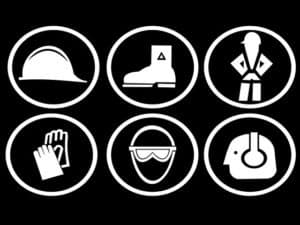
The biggest program that OSHA has launched to date is the Temporary Worker Initiative (TWI), which was introduced in 2013. OSHA states the purpose of the initiative is to increase their focus on temporary workers in order to highlight employers’ responsibilities and ensure temp workers are protected from workplace hazards.
Since launching TWI, OSHA has published a series of guidance documents known as TWI Bulletins, which focus on compliance with safety and health requirements when temp workers are hired under the joint employment of a staffing agency and a host employer. Previous bulletins discussed injury/illness recordkeeping requirements, rules for personal protective equipment/PPE and whistleblower protection rights.
This past May, OSHA published two new TWI Bulletins that highlight safety and health training and hazard communication. Here are some takeaways from these latest guidance docs.
TWI Bulletin No. 4 – Safety and Health Training
This bulletin highlights what both the staffing agencies and host employers should do when it comes to safety and health training for temp workers.
- Both the staffing agency and host employer are responsible for training temp workers, and training must be done prior to the worker beginning his duties.
- It’s recommended that the staffing agency and employer decide which party is responsible for each type of safety and health training that is needed. Training must ensure that the worker can do his work safely, identify potential hazards and understand control and protective measures.
- Host employers are typically responsible for site-specific training. However, staffing agencies are responsible for making sure temp workers receive the appropriate site-specific training.
- Both staffing agency and host employer must ensure that temp workers are properly trained on the process for reporting a work-related injury or illness. In most cases, the host employer will record any injury or illness that’s reported, and the staffing agency should have a process in place for temp workers to report incidents to the agency.
- To read the full TWI Bulletin, click here.
TWI Bulletin No. 5 – Hazard Communication
This bulletin discusses who is responsible for providing hazard communication information and training to temp workers.
- OSHA states that all workers, both permanent and temporary, have a right to know about the hazardous properties of any chemicals they might be exposed to while working. The Hazard Communication Standard (HCS) states that employers must provide information and training related to dangerous chemicals that workers might be exposed to while working.
- Per HCS, employers also need to have a written hazard communication program on site at their facility that talks about warning labels and safety data sheets as well as other information and training.
- OSHA states that the host employer is responsible for providing site-specific hazard communication training for temp workers, and that training must be identical or equivalent to the training provided to their own employees.
- Staffing agencies must provide temp workers with generic hazard communication information that familiarizes them with HCS requirements. The information could apply to various work settings regardless of where the temp worker is employed.
- Staffing agencies are also responsible for making sure that employers have successfully carried out their training responsibilities so temp works are appropriately educated on the potential chemical hazards of their work environment.
- To read the full TWI Bulletin, click here.
If your business is looking for temp workers in CT to help meet your current workforce needs, our temporary staffing services can help! Give us a call today. We have four locations throughout CT to serve you.
